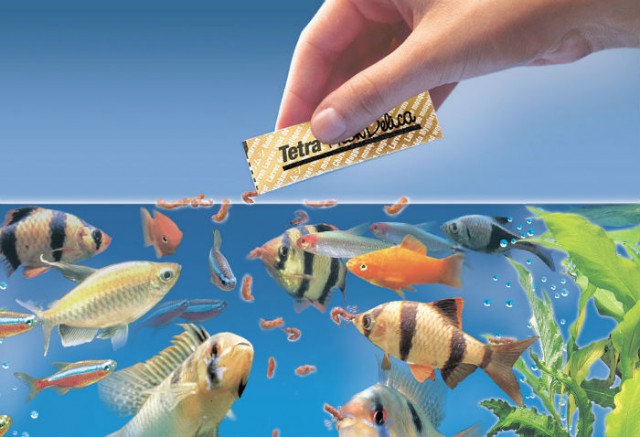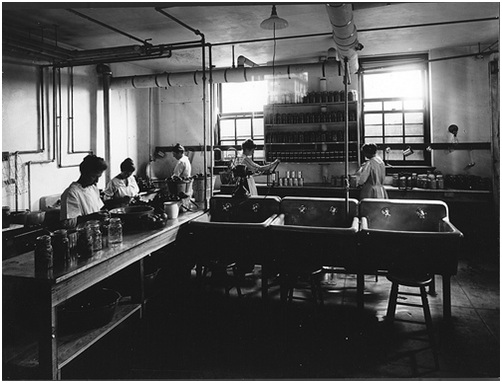One of the biggest pitfalls for new aquarists inparticular, is over feeding the fish in the tank. It can also be really easy to feed the fish the wrong food, especially when you’ve got specialist types that need certain vitamins and minerals.
As your fish grow and have babies, their requirements are likely to change again. And It is also important to note that the feeding habits of your fish will change as other species are introduced to the aquarium.
So there’s never really one right way to feed the fish, it’s always a case of adapting to their needs.
Keeping Them Full And Happy
Like all of us, fish need certain foods in their diet to help keep them full, happy and energetic. Although the protein and fat within the fishes food are their key source of energy, fat is the most important as it is able to give the fish double the amount of energy that they would get from protein. Diets rich in protein can also have a negative effect on the water quality in the tank, as fish eating a lot of protein tend to expel lots of ammonia and urea.
Fat is really fantastic way to enable fish to get their important A, D, E and K vitamins. However the food should contain a minimum of 10% fat in order for the fish to benefit.
The way you decide how much energy your fish require is by looking primarily at their water temperature. The general rule is, the warmer the water, the higher the metabolic rate of the fish. Essentially, if you use an aquarium heater your fish will need more food than a fish living in a tank using aquarium coolers.
As most tropical fish live within a constant temperature, it is much easier for aquarists keeping tropical fish to determine their dietary needs. Generally a good feeding regime is feeding the fish as much food as they require over a few minutes 2-3 times per day. If the aquarium you have is subject to seasonal temperature changes, or you recreate seasonal changes in order to promote breeding or hibernation in your tank, you will need to adjust your feeding regimes accordingly.
Protein
All fish need protein in their diet to help their bodies grow. Generally the average fish needs between 30 and 50% of protein in their diet. Feeding a fish too much protein can be problematic for both the fish and the tank so it’s important to ensure they are given the right amount.
Carbs
Generally, warm water fish tend to be better able to consume carbohydrates than cold water fish. Carbs will appear in most fish foods although they aren’t an important element of the food composition. Overall they are seen as a filler and don’t add much nutritional value to the fishes food because they don’t need them for energy like we do.
Vitamins & Minerals
The vitamins and minerals you give your fish are vital in ensuring they grow properly and reproduce healthy fish (if you’re breeding them). However, many of the vitamins and minerals a fish actually needs come in the water, which means a lot of fish food contains a lot more vitamins and minerals than is necessary. This is thought to be because a lot of the vitamins and minerals can be lost when the food enters water.
Because the nutrients in the food are lost so quickly, the general rule is that the bigger the aquarium is, the more likely it is the fish within it are vitamin deficient. So if you own a large tank, it is worth you doing a little more research into ways you can provide your fish with the nutrients they need. Vitamins will not only ensure your fish stay healthy, but some like vitamins C and E help them stay protected against disease and boost their immune system. However, an overdose of some vitamins can negatively affect the fish, with vitamin A overdoses causing growth hindrance and anemia in some fish.
Feeding fish can be really difficult if you’re new to keeping an aquarium, and even if you’re not. Remember to do your research and seek advice from professionals if you’re unsure what to feed your fish.



